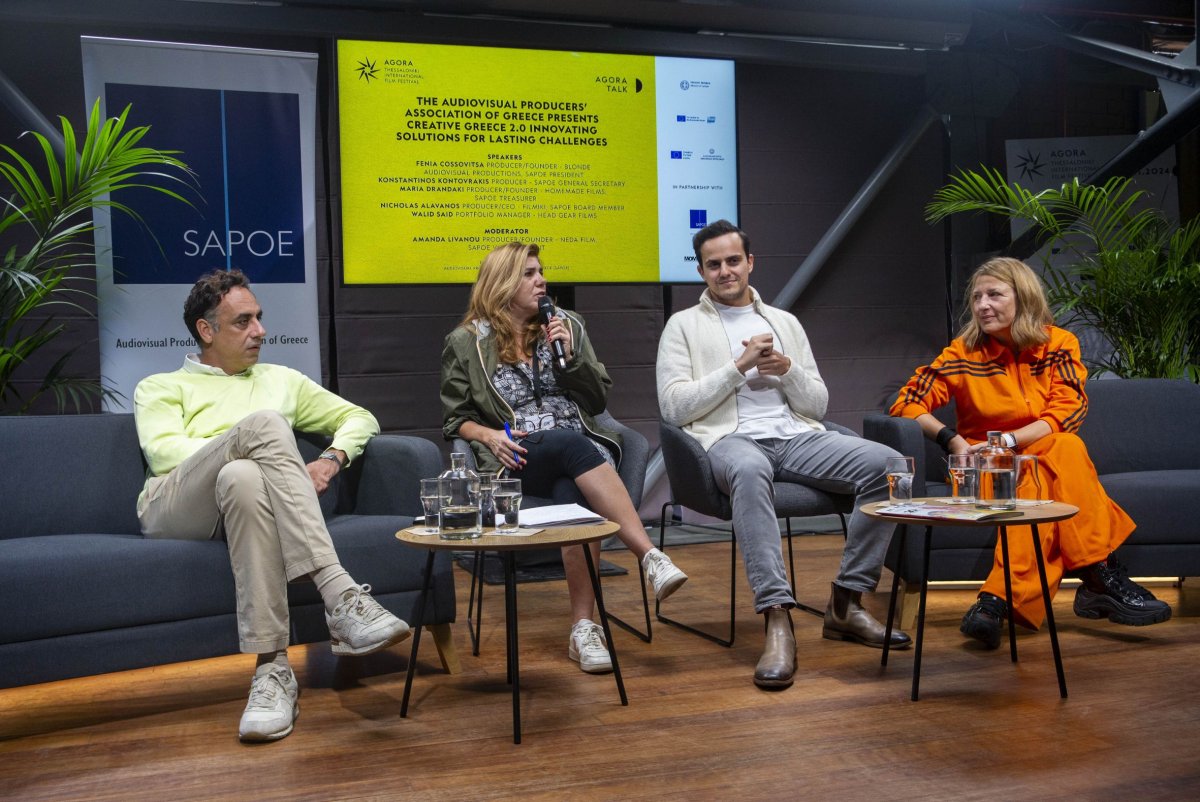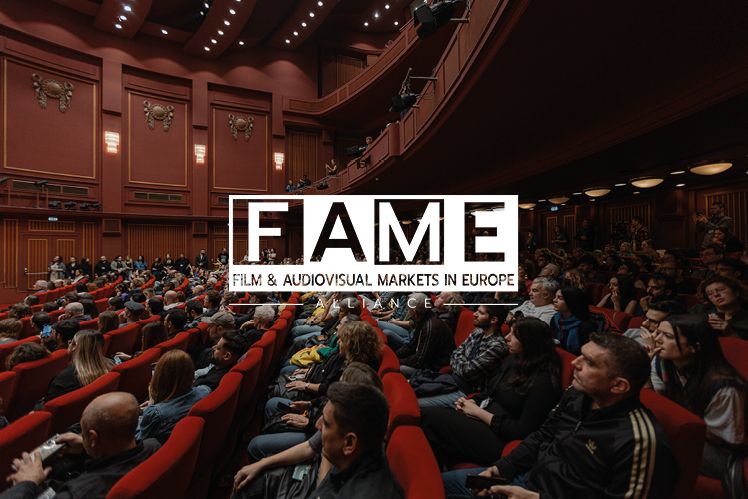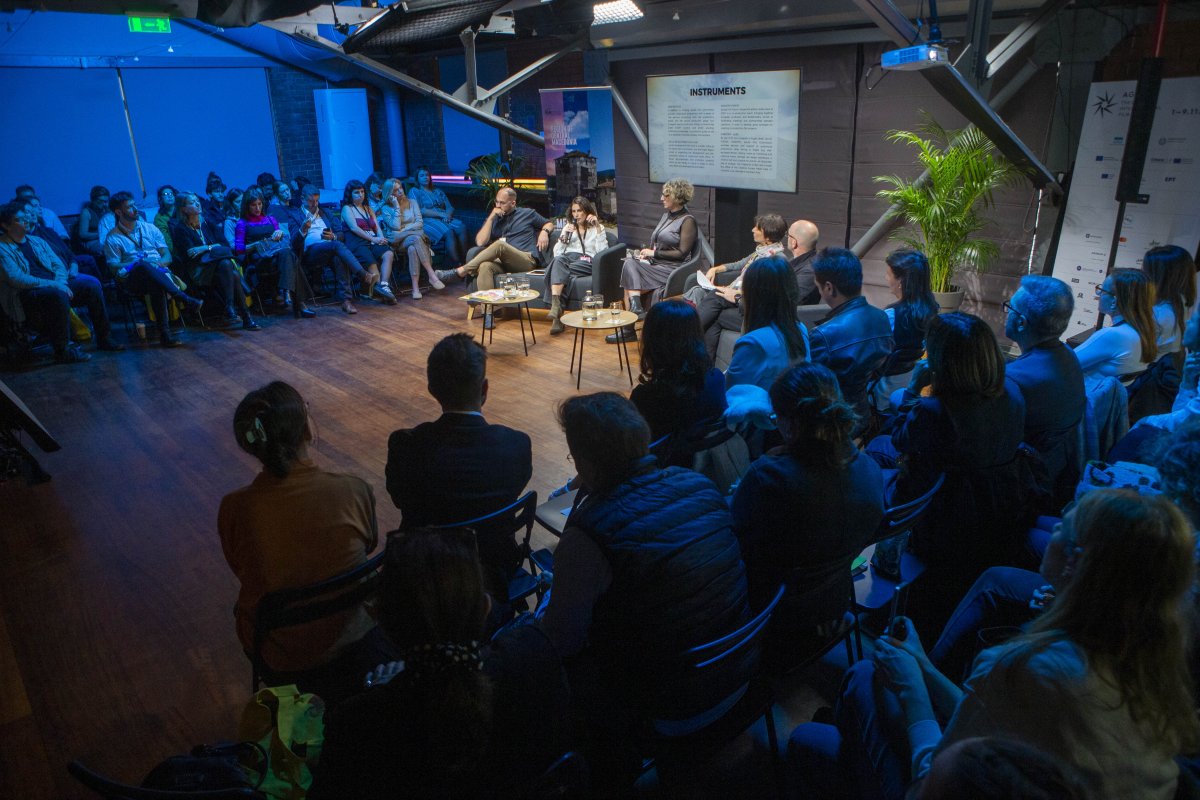Within the context of the Agora Talks of the 65th Thessaloniki Film Festival, the discussion titled “Audiovisual Producers' Association of Greece presents Creative Greece 2.0 - Innovating Solutions for Lasting Challenges” was held on Sunday November 3rd at MOMus-Thessaloniki Museum of Photography. The panelists were: Fenia Cossovitsa, producer and founder of Blonde S.A. and SAPOE President, Konstantinos Kontovrakis, producer and SAPOE General Secretary and Walid Said, portfolio manager in Head Gear Films. The moderator of the discussion was Amanda Livanou, producer and Founder of Neda Film and SAPOE Vice President. The talk was prefaced by Angeliki Vergou, head of Agora, highlighting the strong bond between SAPOE and Agora.
The main topics of conversation were the development of the Greek film industry, the ever-changing funding sources, the key international cooperations, but also the crucial role of coordinated funding in the growth of the domestic audiovisual industry. Amanda Livanou mentioned the recent merger of the Greek Film Centre and the National Centre for Audiovisual Media and Communication. Regarding the future of the Greek film industry, Fenia Cossovitsa remained cautiously optimistic. She mentioned that she expects the implementation of the strategies of the new body during 2025, along with changes in the legislature that will facilitate the development of the domestic industry.
Then, Konstantinos Kontovrakis took the floor. He analyzed the terms “selective” and “automatic” funding, emphasizing that a healthy and complete audiovisual industry always has a selective funding program in its core. He explained that the selective programs are the ones that create opportunities for the local talents. He added that, despite the high quality of Greek productions, the Greek Film Centre was the most indigent in Europe and he expressed his desire for a system that gives opportunities to new and aspiring filmmakers.
At this point, Walid Said presented Head Gear’s approach to funding audiovisual productions, emphasizing that bureaucratic procedures often complicate the producers’ job. He underlined that the funding goal is not the unjust enrichment of the patrons against the producers, but rather the support of the creatives in a just and transparent ecosystem. Finally, the discussion came to a conclusion with a message of optimism, but also with the kind reminder that investing in the cultural sector is essential and rewarding, as it is relatively low-cost and high-yield.















